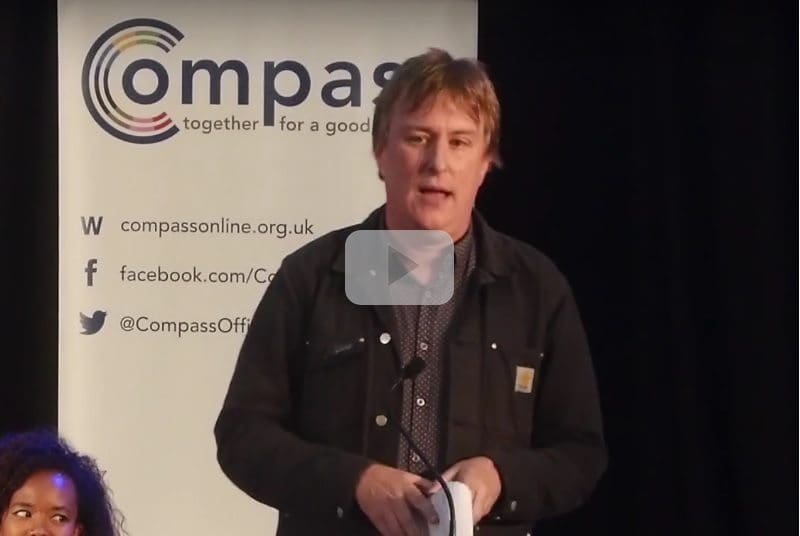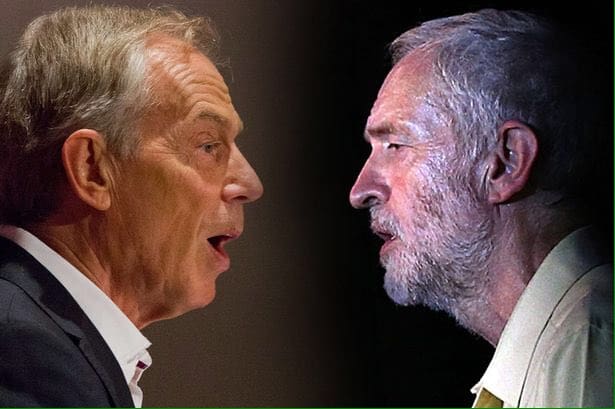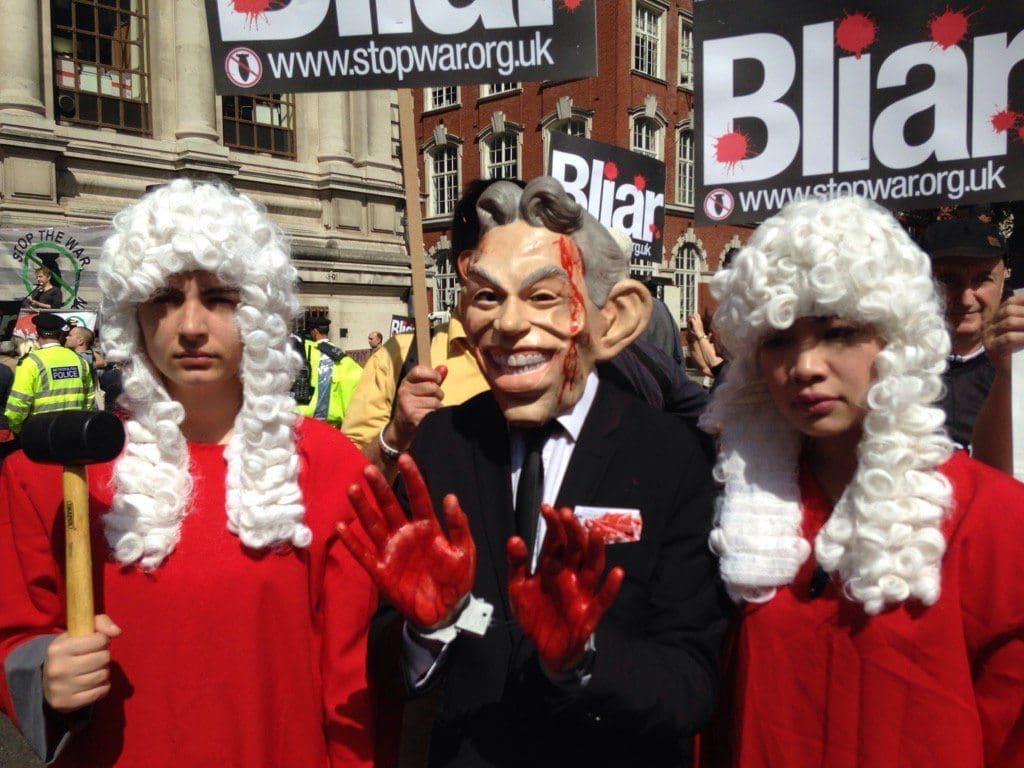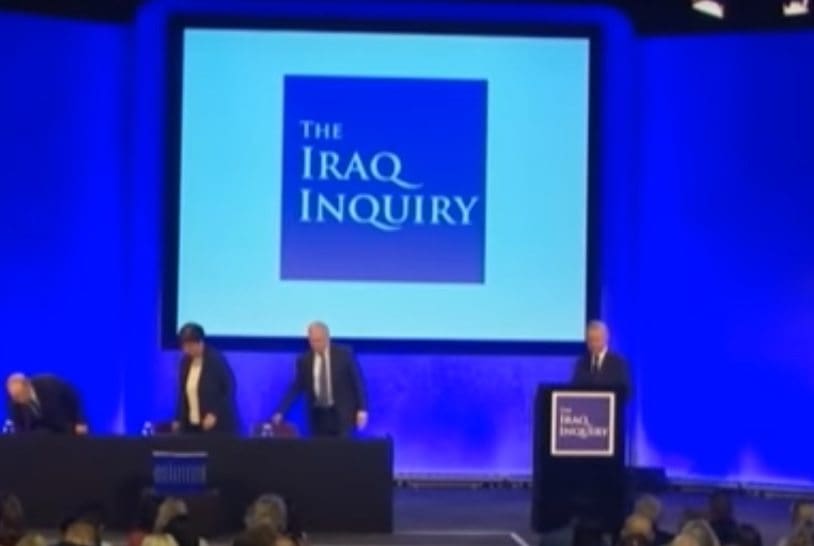Jeremy Corbyn made his first assessment of the Chilcot Inquiry in Parliament on Wednesday – and it was one of the most moving things you’ll see all week. It was damning, yet touching, in equal measure – and without vindictiveness.
The Labour leader was one of the most prominent voices of opposition against the Iraq war at the time, leading protests and actively raising his grave concerns in Parliament. Concerns that were shared by millions of people around the world, but tragically fell on deaf ears.
Corbyn opened by saying that:
I would like to remember and honour the 179 British service men and women killed, and the thousands maimed and injured during the Iraq war and their families, as well as the hundreds of thousands of Iraqis who have died as a result of the invasion and occupation launched by the US and UK governments 13 years ago.
He then began his assessment by giving cool criticism of what he called “the extraordinary time it has taken for the report to see the light”, saying it “is frankly, clearly a matter for regret”. But when it came to the subject of the decision to invade Iraq itself – Corbyn did not mince his words:
The decision to invade and occupy Iraq […] was the most significant foreign policy decision taken by a British government in modern times. It divided this house, and set the government of the day against the majority of the British people.
Corbyn’s criticism became even more overarching. Directly attacking Tony Blair’s government, he said:
the war was not in any way […] a last resort; frankly it was an act of military aggression launched on a false pretext, as the inquiry accepts, and has long been regarded as illegal by the overwhelming weight of international legal opinion.
Questioning the legality provoked a furious reaction from some MPs. However Corbyn continued with his criticisms:
it led to the deaths of 100,000 people […] it devastated Iraq’s infrastructure and society; it fostered a lethal sectarianism […] that turned into a civil war. Instead of protecting security at home and abroad, the war fueled and spread terrorism across the region.
He cited Sunday’s suicide bombing in Baghdad, which killed 250 people and was the worst terrorist attack since the US/UK invasion in 2003 – implying that Daesh (Isis/Isil), which claimed responsibility, was a group that had come into existence as a result of the Iraq war. “By any measure”, Corbyn said, “the invasion and occupation of Iraq has been, for many, a catastrophe”.
He continued:
the decision to invade Iraq on what was clearly flawed intelligence about weapons of mass destruction (WMD) […] has led to a fundamental breakdown of trust in politics and in our institutions of government […] while the governing classes got it so horrifically wrong, many people got it right.
More jeering from backbenchers ensued, one of whom ITV’s political editor Robert Peston identified as Labour’s Ian Austin MP – who can be heard saying “sit down and shut up”, and “you’re a disgrace”.
But Corbyn seemed undeterred. He cited the protests against the Iraq war in February 2003 as being “the biggest ever demonstration in British history”. Amid more continuous heckling, he fired criticism at both Margaret Thatcher’s and John Major’s Tory administrations, implying that while many people protested about Hussein our governments had basically cosied up to him.
Turning his attention back to Blair, he recalled:
we could see that this state posed no military threat and the WMD evidence was flimsy […] If only this house would have listened to many of its own people […] the course of events might have been different. There are members here today who voted against the war […] but none of us such take any satisfaction from this report.
Corbyn briefly paid tribute to the late Robin Cook, Blair’s foreign secretary who resigned over the war. Cook warned at the time of his grave concerns, saying that “I can’t accept collective responsibility for the decision to commit Britain now to military action in Iraq without international agreement or domestic support”.
The Labour leader then rounded on the decision of Blair’s administration to go to war, saying:
the Chilcot report has rightly dug deep into the litany of failures […] but the reality is it was the original decision to follow the US president into this war, in the most volatile region in the world, and impose a colonial-style occupation, that has led to every other disaster.
He summed up by echoing what surely most people who remember the Iraq war must feel. Firing a parting salvo at Blair and the other members of the government who took the UK to war, Corbyn starkly said:
those laid bare in the Chilcot report must face up to the consequences of their actions. Whatever they may be. We make decisions that […] go on for decades and decades […] we need to reflect very seriously before taking any decisions again to take military action without realising the consequence of those we will live with all of us for many decades to come, and will often have incalculable consequences as a result.
While Corbyn’s detractors are often quick to criticise the leader’s soft-touch approach to his speeches in parliament, no such criticism could be levelled on Wednesday.
Having been at the forefront of the campaign against the Iraq war, his stance at the time has now been wholly vindicated. His speech in parliament must have been uncomfortable listening for many on his own backbenches, as there were countless MPs sitting there who voted for military action. He defied his party to stand on the right side of history in 2003. Some might say he is doing the same today.
Corbyn’s address to parliament made clear his position: the choice of New Labour and the House of Commons to invade Iraq was one of the gravest mistakes in modern history.
One which cannot be allowed to happen again.
Get involved!
See more from The Canary on the Chilcot inquiry here.
Featured image via YouTube screenshot



















